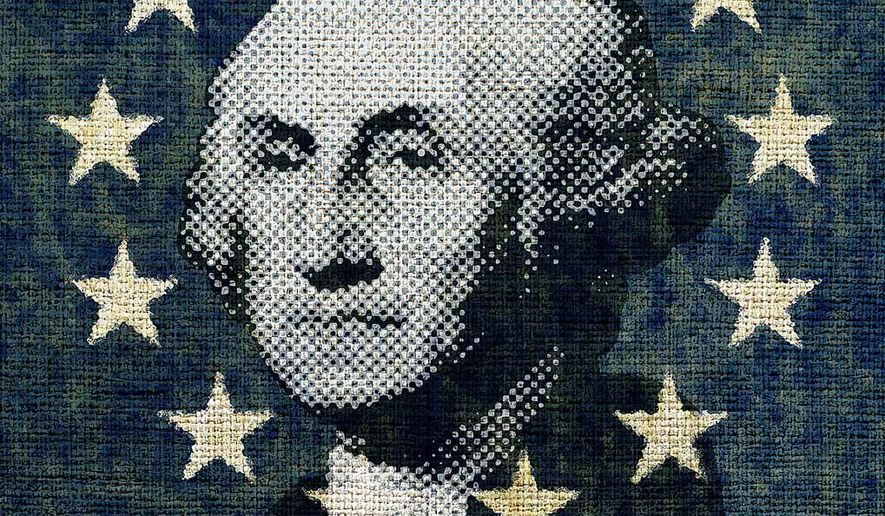OPINION:
George Washington, whose 290th birthday we are now celebrating, is often and probably correctly viewed as the “indispensable man” of the American Revolution more than any of the American Founders. Why did the others consistently choose him as their leader, both in war and peace?
He was exceptionally intelligent, but not as formally well-schooled as many of the other Founders, like Thomas Jefferson and John Adams. He read widely and became highly knowledgeable on many different subjects.
He also was wise enough to listen to others during the debates leading up to the Declaration of Independence and later to the creation of the American federal republic and the writing of the Constitution.
He had the ability to listen to the various arguments and then conclude as to who had the better line of reasoning. As history has proved, Washington usually got it right. Equally important is that once a course of action was decided upon, he, more than any of the other Founders, had the ability to figure out how to implement it — and then actually did it.
Despite his limited military experience, the others trusted him to both build an army and win a war against the superpower of the day — Britain. He had to recruit an army from 13 independent colonies (all of which had large segments of their citizens against independence), find a way to obtain the necessary military supplies from a largely impotent Continental Congress, with questionable legal authority and no ability to tax — and train the new recruits to be able to fight.
Washington made some serious mistakes at the beginning of the Revolutionary War, but he quickly learned and didn’t repeat them (a rare trait), and then figured out how to win against a superior force.
Washington then went on to serve two terms as the first president. When he was elected, there was no government. Washington was given the authority to do a government “startup” and to see if he could make a go of it.
John Berlau has just written a most interesting book, “George Washington, Entrepreneur” (All Points Books), whose subtitle, “How Our Founding Father’s Private Business Pursuits Changed America and the World,” well captures the theme of the book. Washington was a much more innovative person than he is often portrayed.
He attended a church school where he obtained a basic education. He studied mathematics and trigonometry so he could become a land surveyor. His talents and initiative sufficiently impressed his elders so, at the age of only 17, he became the official surveyor of Culpeper County, Virginia.
Washington’s leadership skills, courage and all-around abilities so impressed the British during his service (1752-58) in the French and Indian War, that by the end of his service he was promoted to brevet brigadier general — at age 26. And he had already reached some level of fame.
A year later, Washington married Martha, a young and very wealthy widow. They moved to Mount Vernon, which Washington had inherited, despite the fact that Martha owned a much larger plantation. Berlau’s book focuses on the many innovations that Washington made to his Mount Vernon property, turning it from a tobacco farm into a very diversified agri-business operation.
Despite the lack of real soil science, Washington perceived that tobacco was depleting the soil, and to preserve the land he needed other crops. Tobacco, being a commodity, much of which was exported to Britain where the colonials had little control over the price, was increasingly a losing proposition.
Washington saw the demand for wheat was rising rapidly, with the growing population, so he became a major wheat grower, while endlessly experimenting with various types of wheat from different European countries — to see what grew best in the Virginia climate and soils. Over time, he experimented with more than 60 crops and fruit and nut trees. He did the same with various types of manure for fertilizer. He even built the first greenhouse in Virginia so he could grow tropical plants, including oranges and lemons.
Benjamin Franklin and Thomas Jefferson were well known for their scientific pursuits and innovations, but Washington also was a self-taught scientist focusing on the practical — and particularly agricultural innovations, not only in plant science, but also in tools and machines.
Mr. Washington, perhaps more than any other of the Founders, understood the importance of expertise and experience in building a successful team for any activity — whether it was the organization and management of a government, the creation of business enterprise, or an army. Washington hired the Prussian officer Friedrich Wilhelm von Steuben to train and serve as the inspector general of the Continental army.
He would bring in European stone masons, brew masters and other highly skilled experts to guide and train his American workers (including Black people) for his various businesses and agricultural endeavors. And he created the cabinet form of government when he became president, as well as many of the other institutions and traditions that characterize the American government.
Washington recruited the best people — despite frictions between them. His first Cabinet included Thomas Jefferson as secretary of state; Alexander Hamilton as secretary of the Treasury, Henry Knox as secretary of war (Defense), and Edmund Randolph as attorney general — and John Adams was vice president.
Would you sleep better if you thought these people were running the government rather than the current crew?
• Richard W. Rahn is chair of the Institute for Global Economic Growth and MCon LLC.




Please read our comment policy before commenting.